Alternative careers in science, Part 1
Don’t forget to check out Part 2 and Part 3 of this alternative careers series.
In a previous post, I talked about academia not being designed for people who have depression, anxiety, etc to succeed. I also spent some time talking about imposter syndrome, specifically asking:
How can I sit with a student who has imposter syndrome and say “No, you’re truly awesome and don’t realize it” when if someone tells me that, my first thought is how naive that makes them sound?
And while I know that there are people who can work through these kinds of thoughts and succeed in academia, I am personally considering alternative careers. Why? Because I believe that there is a career that will allow me to give back to the scientific community (and non-scientific community interested in science) that does not require me to constantly be at war with myself emotionally. If you missed it, there was some good conversation in the comments that I hope you’ll take a look at.
This particular post is the first in a series about careers other than being a research advisor (PI) or even being a researcher in industry.
How to figure out alternatives
From talking to other PhD students, there still seems to be a focus in programs on the “academia or industry” discourse. Up until a few years ago, industry wasn’t even an option and was thought by some as selling out. This could, of course, just be a consequence of our training coming from academia. It makes sense to train someone to do the type of job you’re doing. But the more I talk to PhD candidates, the more I’m hearing, “Do I do industry or academia?”
So who would even think there’s something outside of this? Well, when I left high school, I had been doing film & television for a few years, even winning a couple awards for my video editing projects. I went to a fine arts university for Film & Television and spent three and a half years learning every aspect of creating a movie or documentary. So imagine my surprise and excitement when at my first scientific conference, the 2014 Society for Integrative and Comparative Biology (SICB) national meeting in Austin, TX, the keynote speaker was a former marine biologist who was now doing science documentaries. Randy Olson spoke to us about presenting our science as a story and was probably the first person I heard about science communication from after I decided I wanted to do science.
When I started my PhD program that Fall, the program asked us to fill out the Individual Development Plan (IDP). I’m torn about how useful it is for choosing a career based on your skills and interests. I think it’s a great start, especially if you’ve never considered where you want to end up. Most importantly, it has some great information on alternative careers.
More great places to get information once you find something that interests you are society websites in careers that you’re thinking about.
I’ll be going through categories of careers on IDP, and then I’ll spend some time discussing other options that I feel exist. Most importantly, I think it’s important that we know that our options are limitless and that we each should choose a career that works for us individually.
[adinserter block=”2″]
What options are there?
So let’s talk about the first few options listed on IDP besides traditional academia and industry.
Teaching
IDP outlines several teaching paths, including:
- combined research and teaching
- science education for non-scientists (public outreach)
- teaching at the university or college level
- science education for K-12 schools
All of these are great options for individuals who want to foster the next generation of scientists or improve the general public’s understanding of scientific ideas in a traditional setting. To me, the greatest appeal to this track is being immersed in the lives of future scientists. I think many of us could agree that the great teachers and professors we had made classes much more interesting. For me, these people were inspirational, pulling me into the world of science in a way I never thought possible when I started.
I think it’s especially important for us to have a diverse group of teachers for students to engage with because when a student can see themselves in their professor, they are more likely to believe that they can succeed as well.
For more information, check out the National Science Teachers Association (NSTA) website.
[adinserter block=”2″]
Working with businesses or starting your own
If doing research is not where you want to be, perhaps you’d prefer to be a consultant or sales representative.
IDP lists the following career categories:
- Sales and marketing of science-related products
- Support of science-related products
- Business of science
- Entrepreneurship (starting your own business)
For some of these careers, you may need business administration skills, such as management or marketing. However, your knowledge of your science could be indispensable for companies looking for sales representatives or for people looking for someone to bridge the gap between the business side of things and the science side of things.
If any of this sounds interesting, take a look at the Medical Science Liaison (MSL) Institute, the Biotechnology Innovation Organization (Bio), and the Ewing Marion Koffman Foundation.
Administration and policy
Every scientific society and many government agencies and nonprofits rely on scientists to act as experts and help guide policies. Communicating science to others is never easy, especially when they have their own agendas. But I think it can be extremely rewarding to help push our society into the future by shaping policies on the local, national, or international level. Likewise, experts are needed to guide how institutions implement policy compliance. And some of this work is fully translational, such as managing clinical trials.
I think these careers suit someone who is passionate, good at communicating science and creatively compromising, who likes to deal with other people, and who wants to have huge impacts on how our society is run.
Here are some categories listed on IDP:
- Science policy
- Clinical research management
- Research administration
[adinserter block=”2″]
There are many more career options out there, and I plan to list the rest of those from IDP in Part 2 of this series. However, I also want to note again that sometimes even a long list of careers doesn’t capture everything. In a future part, I’ll be considering career options that aren’t in IDP.
Don’t forget to check out Part 2 and Part 3 of this alternative careers series.
If you like these posts, please consider signing up for my mailing list below. I will only e-mail you to let you know of new posts. Otherwise, you can follow my crazy life journey on Twitter, where I also post when I update.
Did any of these career options stand out to you? Would you be willing to do additional schooling or certification to get into a new career track? What resources have you used to investigate alternative careers in science?






